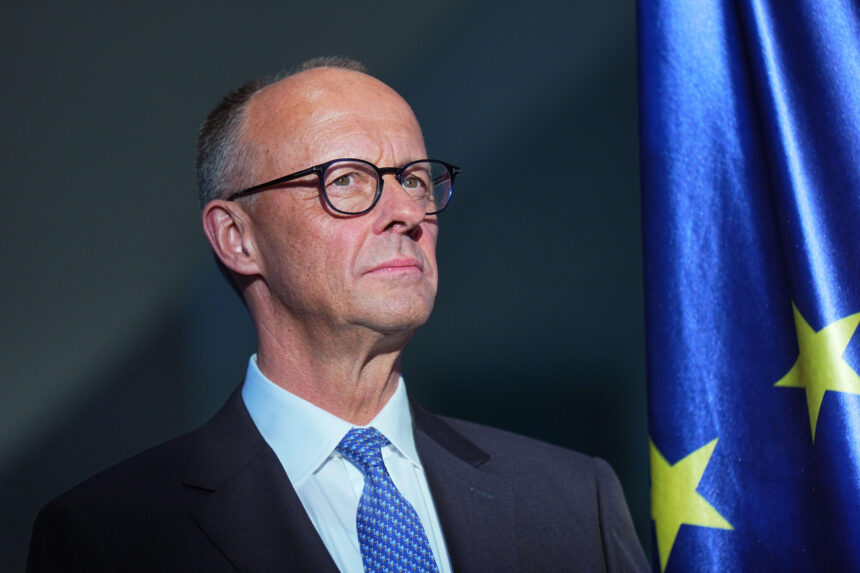Will Germany face a heated autumn of debate over deep reforms to its welfare state? The Chancellor’s remarks on the German social model have sparked widespread reactions.
Admired, envied, and criticized—the German welfare state, long renowned, is now in serious trouble: from health insurance, long-term elderly care, pensions, to unemployment benefits.
In all these sectors, the federal government must regularly inject large sums of tax revenues to prevent the collapse of the social system.
The CDU/CSU-SPD governing coalition, upon taking office, had promised comprehensive reforms of the welfare state and modernization of Germany’s social insurance systems. But disagreements remain over how to achieve this.
Chancellor Merz’s Appeal
A recent statement by Chancellor Friedrich Merz suggests that in the coming months Germany will face intense debate both within the coalition and across society on these reforms.
Where will reforms take place, where will cuts be made, and how severe will they be?
“The welfare state as we have it today is no longer financially viable given our current economic performance,” said Chancellor Merz at a CDU party conference in Lower Saxony, Osnabrück, over the weekend (23.08.), stressing the need for a reorganization of social policy.
“I will not allow myself to be irritated by terms such as social cuts, harsh measures, and so forth,” Merz added, addressing his Social Democratic partners. “But my appeal is to all of us: Let us show together that change is possible, that reforms are possible.”
SPD Does Not Rule Out Tax Increases
Merz’s statement followed a proposal from the SPD to increase taxes.
Vice-Chancellor Lars Klingbeil of the Social Democrats had earlier stated that he would not rule out higher taxes for high earners and the wealthy.
“No option is off the table,” the SPD leader told broadcaster ZDF.
As Finance Minister, Klingbeil faces the challenge of filling multibillion-euro gaps in future federal budgets.
Looking Back to Helmut Kohl: SPD Reminds CDU of the 1990s
While supporting reforms, Klingbeil warned against social injustice.
“We need structural reforms to keep social contributions sustainable in the long term,” he told the Funke media group.
According to the Finance Minister, all reforms must adhere to one principle:
“We remain a country that helps people in need, those who fall ill, and those who require assistance.”
Rhineland-Palatinate Minister-President Alexander Schweitzer (SPD) also pointed to higher taxation of the super-rich as the solution.
He reminded the CDU of the Helmut Kohl era, saying the party should “dare to be more like Helmut Kohl.”
In the mid-1990s, the top tax rate was 56 percent, and there was also a wealth tax, reports DW.
“Nobody had the impression then that socialism was reigning in Germany. It serves democracy to hold accountable those who are so wealthy they will never face hardship,” Schweitzer told Tagesspiegel.
CDU Rules Out Tax Increases
The CDU, the senior partner in the governing coalition, categorically rules out tax hikes.
Chancellor Merz excluded any additional burden on small and medium-sized businesses:
“Under this federal government, under my leadership, there will be no increase in income tax for small and medium-sized enterprises in Germany,” he said, though he noted that “some within the SPD seem to relish discussing tax hikes.”
Merz also voiced criticism of the coalition’s performance so far:
“I am not satisfied with what we have achieved so far. We need more,” he said, though pointing to progress on a new migration policy and efforts to boost economic recovery.
He also expressed his wish for an SPD “more critical of migration and more business-friendly.”
A “Socially Harsh Autumn”?
Merz’s remarks on the welfare state were backed by CDU General Secretary Carsten Linnemann.
Calling for a “paradigm shift” in citizen benefits (Bürgergeld), Linnemann warned:
“Germany is with its back against the wall because the welfare state has become unaffordable,” he told Neue Osnabrücker Zeitung.
Meanwhile, SPD’s Klingbeil’s idea of raising taxes is gaining traction within his party.
Juso (SPD youth wing) leader Philipp Türmer declared social cuts a red line for the SPD:
“If the idea behind an autumn of reforms is to cut social services and benefits, I can say without hesitation: The SPD cannot move even a centimeter in that direction,” Türmer told Stuttgarter Zeitung.
The opposition Left Party also reacted strongly. Parliamentary group leader Heidi Reichinnek warned of a “socially harsh autumn”:
“We are currently witnessing how labor rights and the welfare state are under massive attack from expert groups, employer associations, and so-called experts,” she told AFP, accusing CDU/CSU of leading the charge. She called for the reintroduction of a wealth tax.
Next Steps: Reform Commission in Motion
Work has already begun. Starting in September, a new commission will propose reforms to social benefits such as citizen’s allowance (Bürgergeld), housing benefits, and child supplements.
The State Social Commission, appointed by Labor Minister Bärbel Bas (SPD), is expected to present its findings by the end of 2025.







